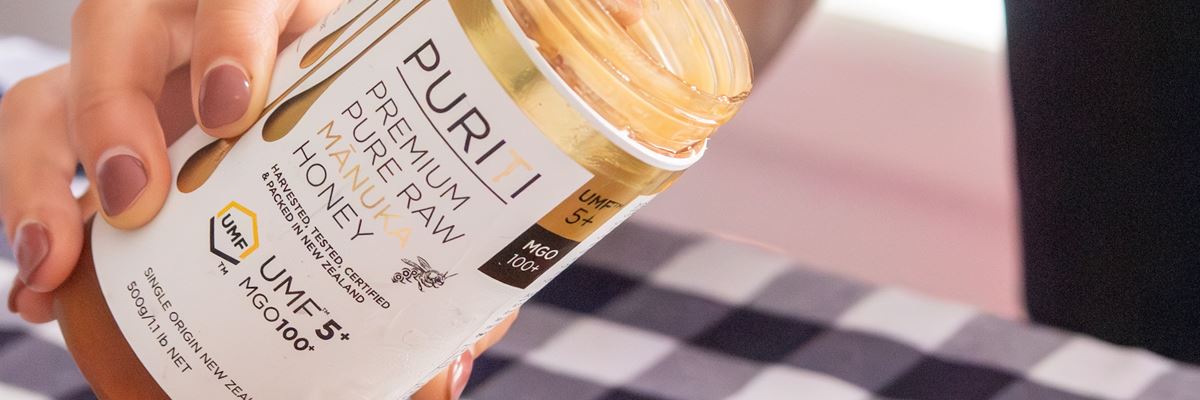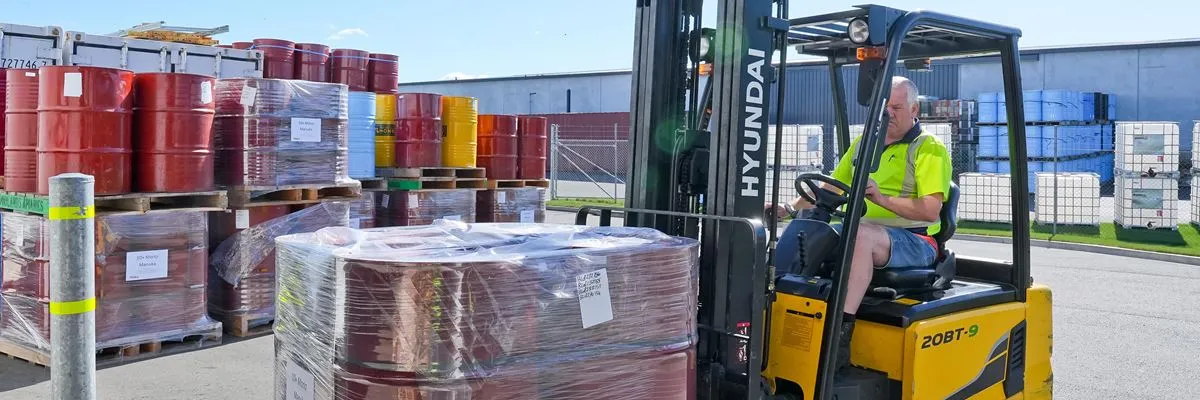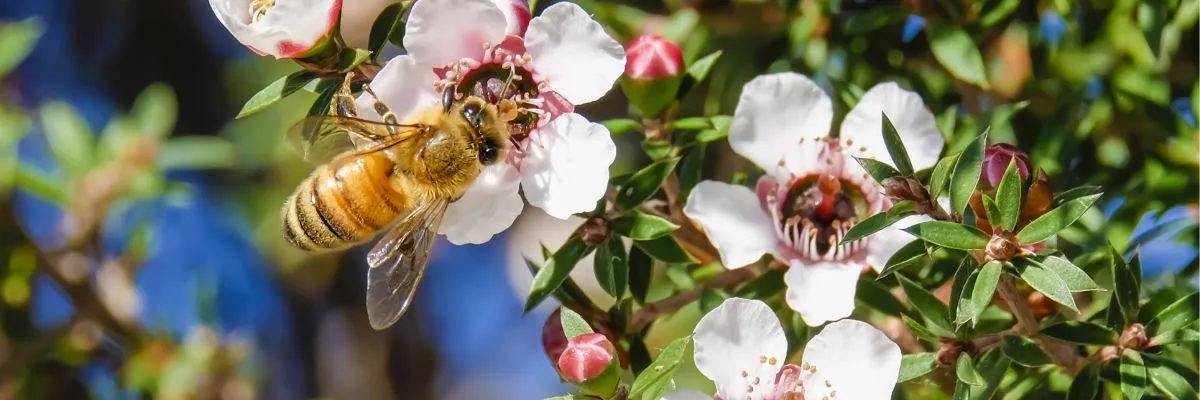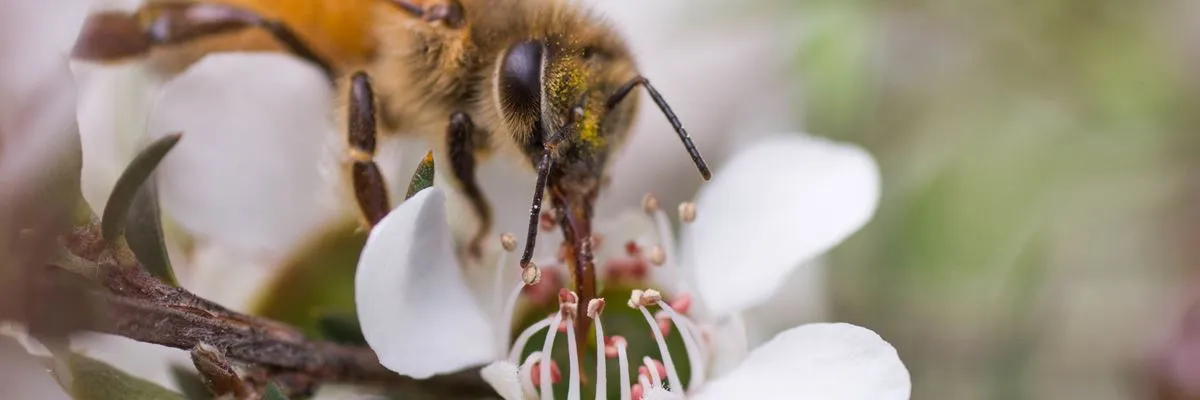What Components Make Manuka Honey Antibacterial
February 5, 2022
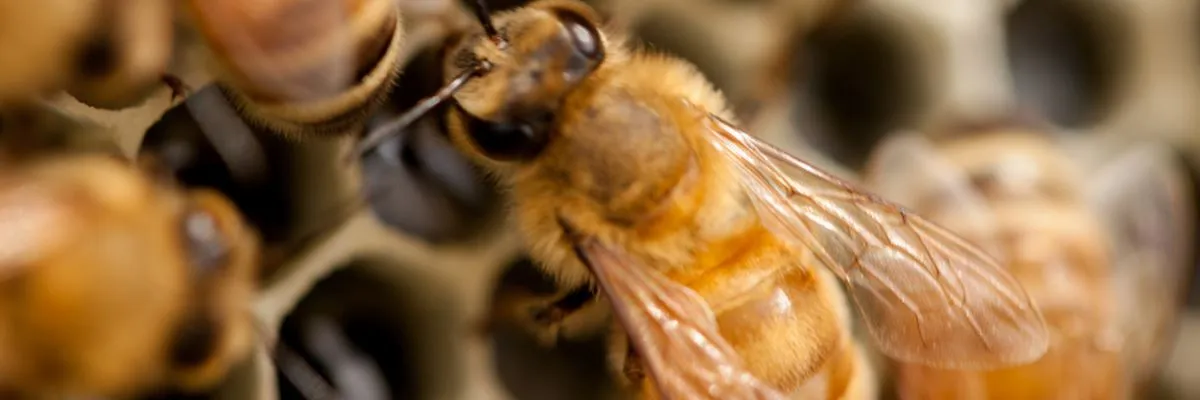
The importance of Mānuka honey for medicinal purposes has been well-documented over the past couple of decades. As a darker, monofloral variety rich in unique ingredients, genuine Mānuka honey stands out from other conventional types.
There are a few star ingredients within Mānuka honey, but none have been as acclaimed as methylglyoxal (MGO). This ingredient has been identified as a critical bioactive compound that gives Mānuka honey its unique signature. This blog will delve into MGO and the other compounds which can also add to the antibacterial power of 100% pure New Zealand Mānuka honey.
How Does MGO Promote Antibacterial Activity?
MGO has been hailed as the antibacterial hero of Mānuka honey due to chemical interactions with bacteria. Depending on the bacteria in question, the MGO can interact with the bacterium and alter the shape and size of the structure. This process has been reported to make it difficult for the bacteria cells to replicate and multiply.
The Unique Mānuka Factor (UMFTM) will determine how much MGO is present within the Mānuka honey product. The higher the UMFTM grade, the stronger the MGO concentration among other things. Mānuka honey gets the title “superfood” due to the level of MGO found within. Multifloral Mānuka honey can also have MGO, but the rarer monofloral Mānuka variety can exhibit MGO levels up to 100 times higher than found in other conventional honey.
Read: The Difference Between Monofloral and Multifloral Manuka Honey
MGO has become such a precious ingredient that even the New Zealand Government has a scientific definition for monofloral Mānuka honey. This regulation ensures that others worldwide cannot be labelled as Genuine New Zealand Mānuka.
Are There Other Organic Compounds Within Manuka Honey That Support Antibacterial Activity?
While MGO has been suggested to be responsible for the natural antibacterial activity of Mānuka honey, there is not currently enough evidence to conclude that other components of pure monofloral Mānuka honey contain antibacterial properties.
Other honey tends to typically rely on high levels of hydrogen peroxide to have any antibacterial effects. Surprisingly, Mānuka honey does not contain as much hydrogen peroxide and instead depends on the unique MGO to get rid of bacteria. This is commonly referred to as the non-peroxide activity.
Finally, there was discussion around Dihydroxyacetone (DHA), which turns into MGO, as it may also have been antibacterial. However, a study in 2009 found that DHA is not antibacterial and may only gain this potential ability once converted into MGO. Nevertheless, DHA remains an essential marker for identifying genuine Mānuka honey.
What Is The Best Way To Use Antibacterial Manuka Honey?
There are several methods to apply monofloral Mānuka honey to take advantage of the antibacterial activity.
Strong levels of Mānuka honey have been suggested to support skin when applied topically. There are also reports that Mānuka honey may add a barrier of moisture to the skin. This makes for the perfect face mask for people who appreciate a more natural approach to skincare.
Scientific overviews and several natural skincare brands frequent the use of monofloral Mānuka honey within their products. There are several supposed “before and after” images online of people who have seen remarkable results from Mānuka honey face masks.
Midlands Apiaries Can Provide You With 100% Pure New Zealand Manuka Honey
Midlands Apiaries is the perfect partner to provide you with MGO-rich monofloral Mānuka honey for your business. Our widespread Mānuka honey supply and production operations can accommodate your needs. Proudly supplying multifloral and UMF-certified monofloral Mānuka honey, we can work with you to achieve your goals.
We also offer the services of a highly knowledgeable Sales & Marketing team. So if you’re looking to bring a fantastic brand to market, our team of professionals can plan a pathway to your launch. With an extensive network of honey supplies and laboratories - Midlands Apiaries can provide your business with everything it needs.
Additionally, as the largest New Zealand supplier of wholesale Mānuka honey globally, Midlands Apiaries knows a thing or two about quality. An independent, accredited laboratory tests each batch of Mānuka honey from Midlands Apiaries for certification. We are very aware of the stringent requirements set forth by UMFHA (Unique Mānuka Factor Honey Association).
Get in touch with us today for more information about how Midlands Apiaries can make for a beneficial partner in your budding business.
references
Burlando, B., & Cornara, L. (2013). Honey in dermatology and skin care: a review. Journal of Cosmetic Dermatology, 12(4), 306-313. https://onlinelibrary.wiley.com/doi/abs/10.1111/jocd.12058
Johnston, M., McBride, M., Dahiya, D., Owusu-Apenten, R., & Nigam, P. S. (2018). Antibacterial activity of Manuka honey and its components: An overview. AIMS Microbiology, 4(4), 655. https://www.ncbi.nlm.nih.gov/pmc/articles/PMC6613335/
Quick Navigation
Contact our team

Steve Williams
BCom (Mgt Sc)
Seed Multiplication Sales Manager
Midlands Seed
+64 27 553 0846seed@midlands.co.nz



Nick Kerr
BCom (Hons)
Honey Sales - North America & Europe
Midlands Apiaries
+64 27 807 9849honey@midlands.co.nz
Tasman Walker
BCom (Mktg) | BSc (Psy)
Honey Sales - Asia & Australia
Midlands Apiaries
+64 27 237 6318honey@midlands.co.nz
Hamish Finnie
BSc (Food Sc. & Hum. Nutr.)
Honey Sales - Greater China Region
Midlands Apiaries
+64 27 405 1273honey@midlands.co.nz








